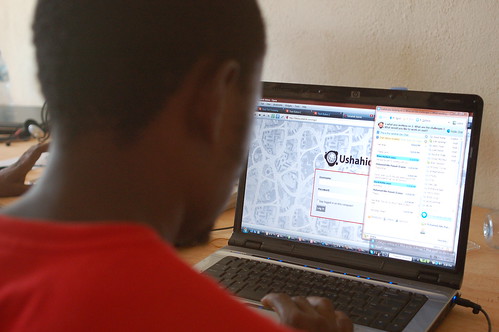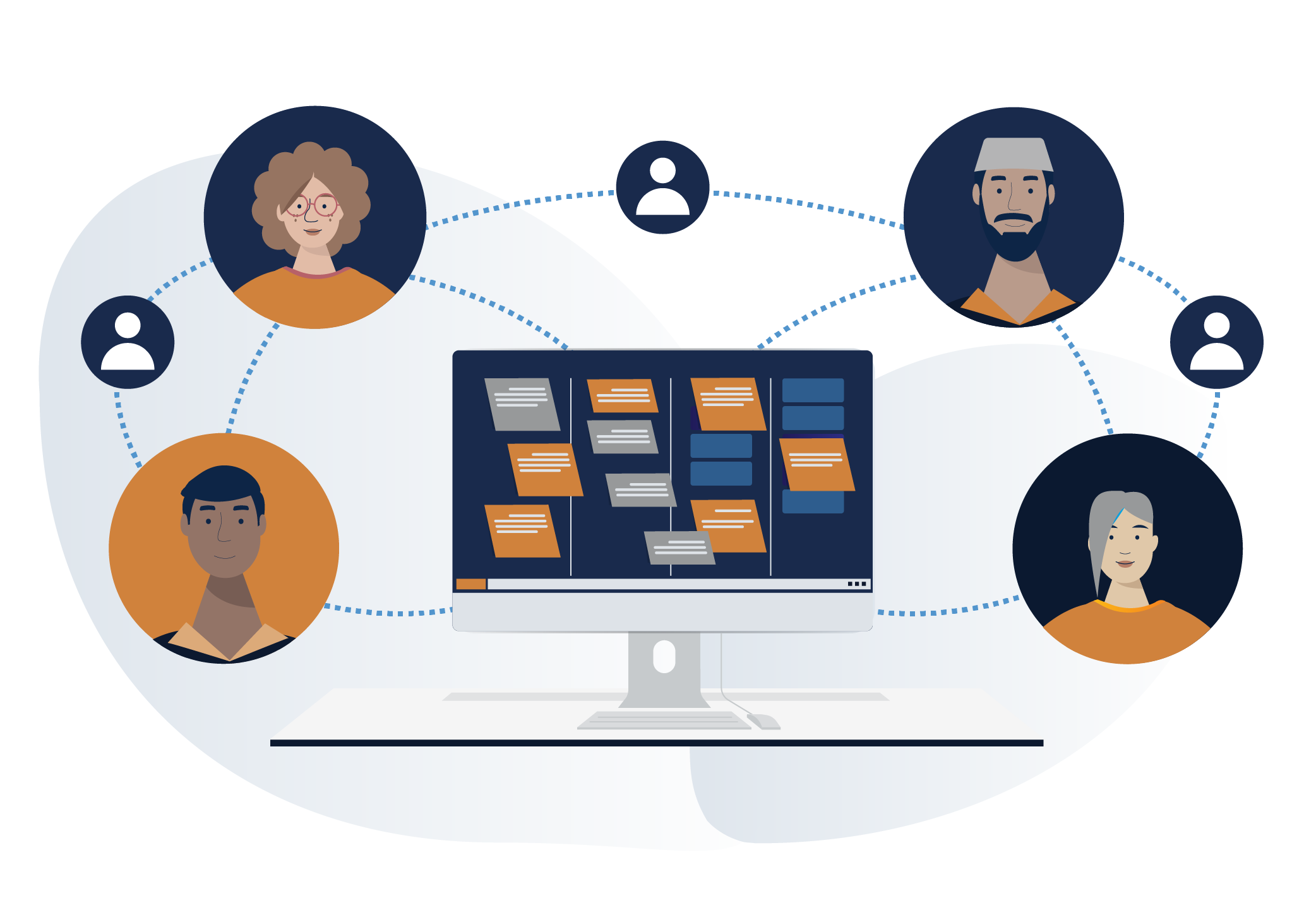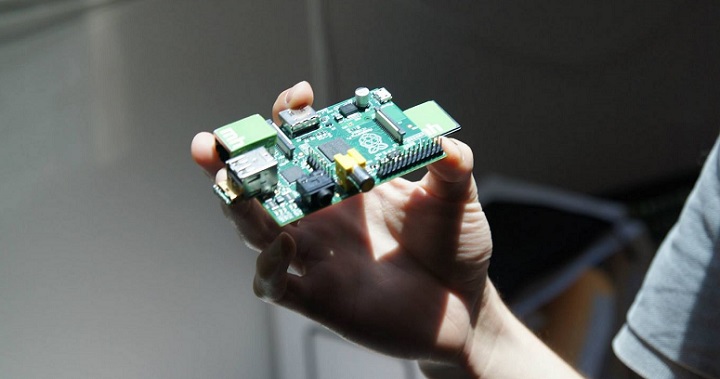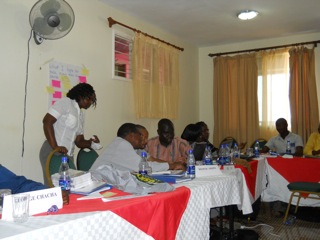
Moved by images of buildings crumbling like sand castles and children wandering the streets crying for parents buried in the rubble, I donated $10 to the Yéle Haiti Earthquake Fund, excited that saving the world was as simple as texting — something I do daily without even thinking. Yéle reportedly collected more than $2 million from its SMS fundraising, which was lead by hip-hop producer and Yéle chairman Wyclef Jean. Then a report by Smoking Gun lifted Jean’s Superman cape. Turns out the organization had some serious financial mismanagement issues, including not filing taxes and large payouts given to Jean and his associates. Jean defended Yéle’s credibility, but the damage was done. One year after the earthquake, millions of Haitians are living in tents and dying in record numbers of curable diseases, even after donors around the world gave more than $14 billion.
This is what I call an aid fail.
World Vision sending unwanted NFL t-shirts with congratulations for the losing Super Bowl team to Zambians is a dumb aid fail. The World Bank blindly giving $133 million to the Cameroonian government for free antiretroviral drugs that ended up being sold on the black market never reaching dying AIDS patients, is an epic aid fail. Even the wildly-popular TOMS Shoes — a for-profit company whose “One for One” campaign donates a new pair of shoes to children in developing countries for every one pair sold — was guilty of aid fail after the writers of Good Intentions pointed out that the company’s give-aways undermine local merchants who sell and make shoes in those countries (not to mention shoes are the least of people’s problems in Ethiopia).
After Good Intentions launched their counter campaign to TOMS’ “A Day Without Shoes,” I posted on my Twitter: If you want to help Africa, send faster Internet not shoes or loser-NFL T-shirts. Most of my friends sent “LOLs,” but one messaged me with a sincere question. “Ok, then” he asked, “how can I help?” This question bounced in my mind like a ping-pong ball for weeks until I had an “Aha” moment: Techvest (taken from technology and invest). Investing in technology start-ups and funding ideas from tech entrepreneurs in Africa is a form of aid the continent needs most right now.
Africa is the fastest growing mobile phone market in the world and Internet penetration across the continent is higher than ever. The world witnessed this “technology revolution” when Egypt’s and Tunisian citizens used Facebook and Google’s Tweet to Speak to tell the world of the atrocities ravaging their countries.
Let me scale down this image.
For six months I taught new media classes at a secondary school in Buea, Cameroon. By the second week I was amazed at my students’ innate ability to learn technology that was foreign to them before my arrival. With the connectivity of the Internet they sent their thoughts on AIDS, child labor, and musings on their teenage lives to homes around the world in one mouse click. Living in governments where the needs of young people go ignored, these kids are finding freedom in technology. Students in Namibia stressed the need for computers and tech training in their appeal to the United Nations Children’s Fund (UNICEF). “Through ICT we can get information and know what is happening in the world around us,” 17-year-old William Hangula told UNICEF Newswire. “If the government does not provide computers to schools,” he pleaded, “we will be left out.”
Techvest would give promising developers the capital to foster their ideas and lead the way for Africa to have the totem of economic progress: A stable middle class. Recent innovations prove a silicon valley is possible in Narobi, South Africa or even Cameroon. Crowd-mapping application Ushahidi, created by Kenyan techies, is now the first option in disaster response around the world. Text messages are being used in South Africa to reach HIV patients in remote villages. Last month, Google hosted its first Android Developer Challenge in Sub-Saharan Africa, drawing brilliant minds. Africa is not devoid of innovation, says Mfonobong Nsehe, a blogger for Forbes Magazine, who highlights Africa’s best tech firms on his column “The Africa Chronicles.” What is needed is money to help get these idea off the ground.
The US State Department is catching on. In 2009 it pledged $5 million in grants under Secretary of State Hillary Clinton’s Civil Society 2.0 program to provide groups in North Africa training using tools like social media, web design, and blogging. From a development stand point, investing in these initiatives is a way of, “using technology to help people solve their own problems,” Anne-Marie Slaughter, a former director at the State Department, told the Counsel on Foreign Relations. This is a noble contribution, but it is not nearly enough.
There are thousands of developers across the continent just waiting to launch the next Ushahidi or FrontlineSMS; not to line their own pockets, but to advance their countries’ progress. Techvest will keep digital natives in Africa and help decrease the “brain drain” that is hurting growth. Here’s one way you can help: Check out Venture Capital for Africa (http://www.vc4africa.com), a social network that connects investors directly with entrepreneurs in need of start-up capital. Even a small investment can help strengthen a nation and prevent aid fail.
If you would like to know more about how to use some of these tools mentioned, consider taking our online certificate course: Tech Tools and Skills for Emergency Management on September 5-23.



